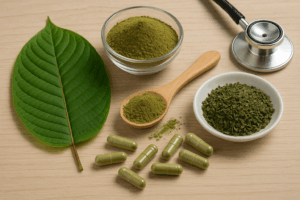Addiction is often shrouded in stigma—a societal belief that can lead to shame, isolation, and reluctance to seek help. Many individuals grappling with substance use disorder face judgment not just from society but also from themselves. This stigma can prevent them from pursuing the treatment they need, creating a barrier that can feel insurmountable. In this post, we will explore the stigma surrounding addiction and how medications like Suboxone (Buprenorphine/Naloxone) can play a crucial role in recovery.
Understanding the Stigma
Stigma surrounding addiction stems from misconceptions about what it means to be addicted. Many people still view addiction as a moral failing rather than a complex disease that affects the brain. This perspective can lead to negative stereotypes, painting individuals struggling with addiction as weak or unworthy.
Consequently, those dealing with addiction may experience feelings of shame and guilt, making it difficult for them to seek help. They may worry about being judged or misunderstood by friends, family, and healthcare providers. This stigma not only impacts their mental health but also prolongs their struggle with addiction.
The Role of Suboxone in Recovery
Suboxone, a medication made from buprenorphine and naloxone, is a highly effective treatment for opioid use disorder. By mitigating withdrawal symptoms and cravings, Suboxone allows individuals to focus on their recovery without the overwhelming burden of physical dependence.
1. Reducing Withdrawal Symptoms
One of the most significant hurdles in overcoming opioid addiction is the withdrawal process. Symptoms can be severe and often deter individuals from attempting to quit. Suboxone (Buprenorphine/Naloxone) alleviates these symptoms, making it easier for individuals to start their recovery journey without the fear of debilitating discomfort.
2. Curbing Cravings
The cravings that accompany addiction can be relentless, often leading individuals back to substance use. Buprenorphine, one of the components of Suboxone, binds to opioid receptors in the brain, providing relief from cravings and helping individuals maintain their sobriety.
3. Empowering Recovery
By integrating Suboxone (Buprenorphine/Naloxone) into a comprehensive treatment plan, individuals can regain control over their lives. With the physical aspects of addiction managed, they can focus on essential therapeutic interventions, such as counseling and support groups, that address the underlying issues of their addiction.
Combating Stigma Through Education
As we work to combat the stigma surrounding addiction, education plays a crucial role. By informing the public about the nature of addiction as a chronic disease, we can foster greater understanding and empathy. It’s essential to communicate that seeking help is a sign of strength, not weakness.
When it comes to medications like Suboxone (Buprenorphine/Naloxone), public awareness is vital. Many people may not understand how these medications work or view them as simply replacing one addiction with another. However, Suboxone (Buprenorphine/Naloxone) is a legitimate treatment option supported by research and clinical practice. It enables individuals to reclaim their lives, offering a pathway to recovery that should be celebrated rather than judged.
Supporting Each Other in Recovery
As a recovery clinic, Direct2Recovery is dedicated to creating a safe, supportive environment for those seeking help. It’s important to remember that recovery is a journey, and each person’s path will look different. By fostering a community that embraces understanding and compassion, we can help individuals feel less isolated in their struggles.
If you or someone you know is battling addiction, remember that help is available. Medications like Suboxone (Buprenorphine/Naloxone) can make a significant difference in the recovery process. Together, we can break down the stigma surrounding addiction and pave the way for a brighter future for everyone.
Are you or a loved one suffering from opioid dependency due to substance use or chronic pain? Please contact us today.





